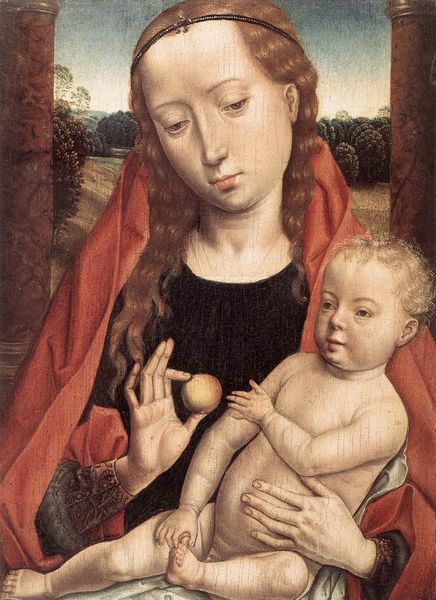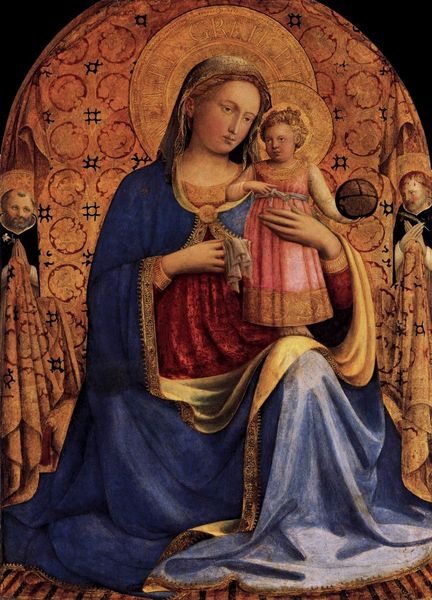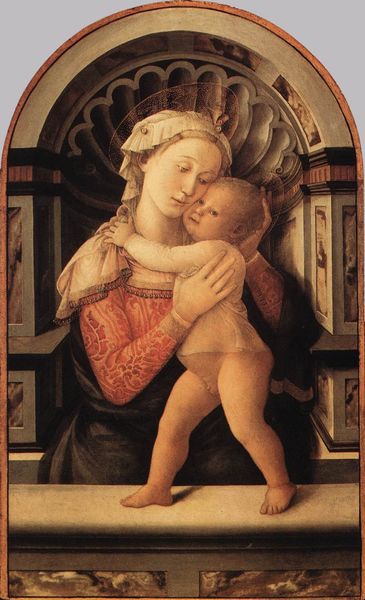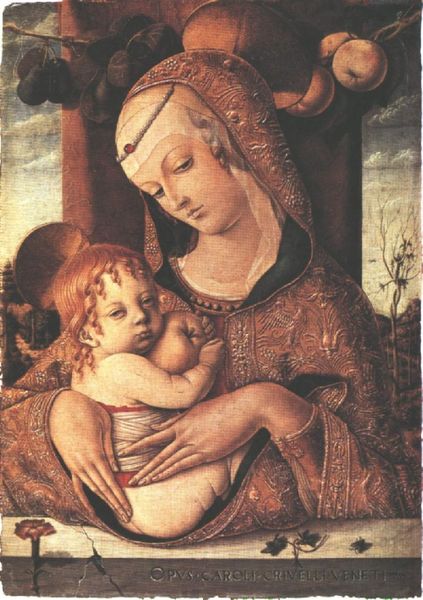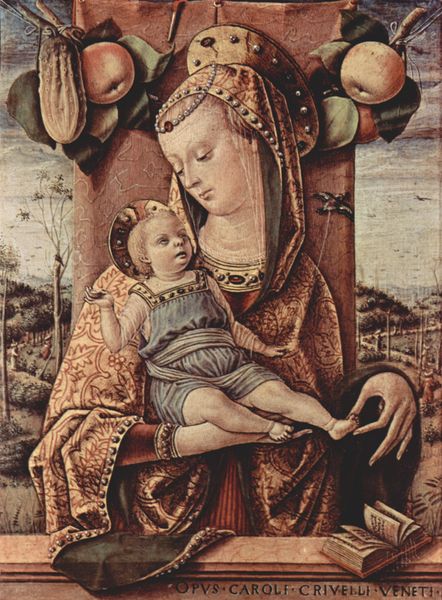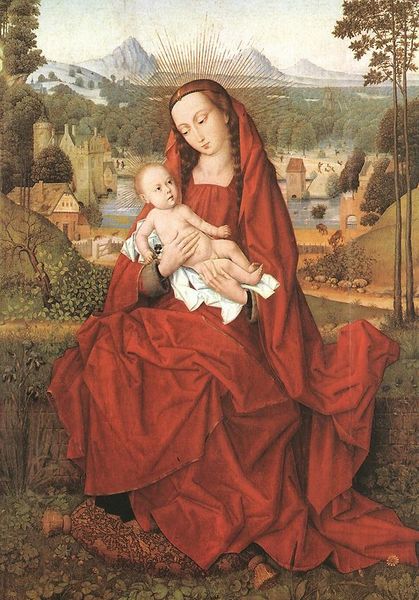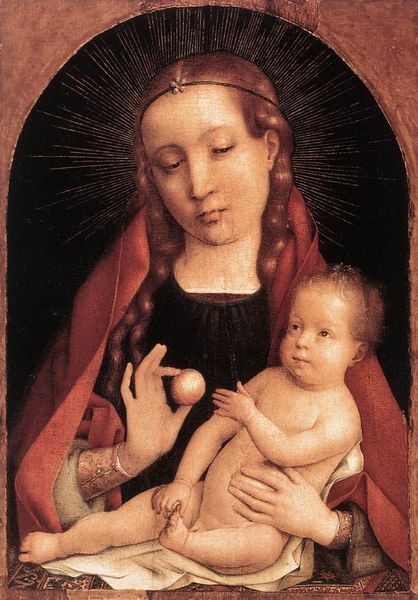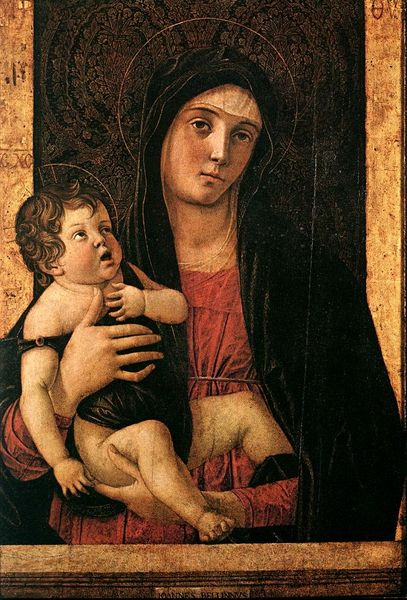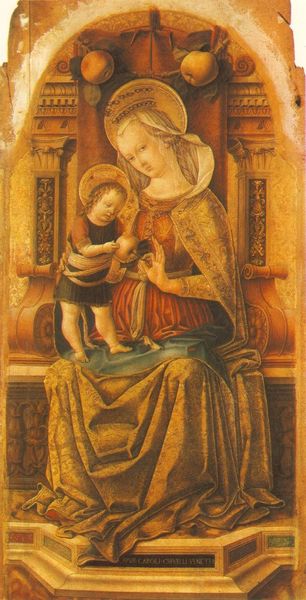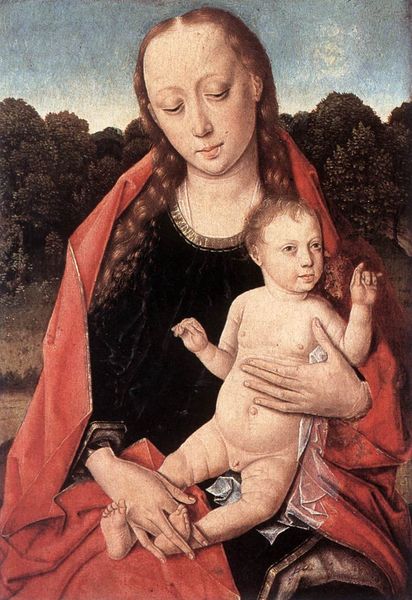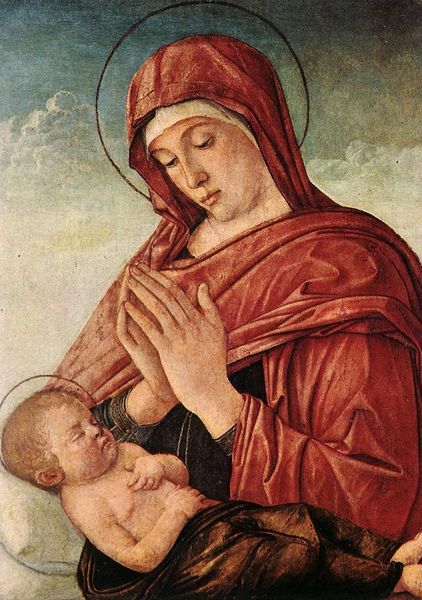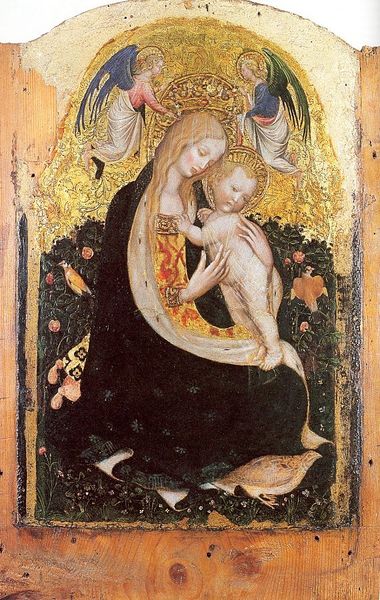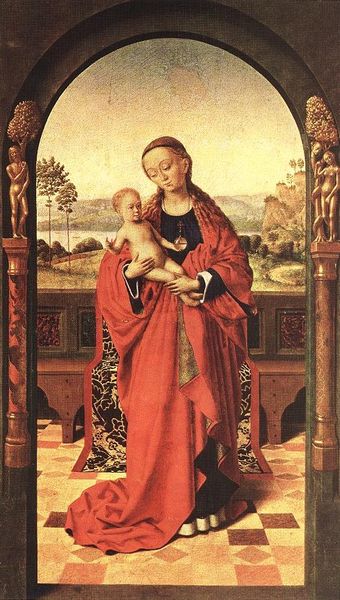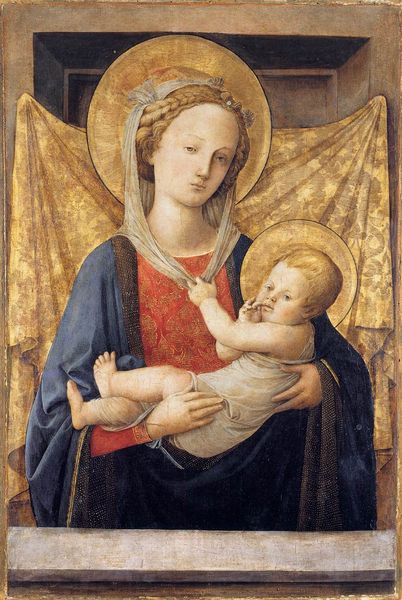
tempera, painting, oil-paint
#
portrait
#
medieval
#
tempera
#
painting
#
oil-paint
#
christianity
#
history-painting
#
northern-renaissance
#
christ
Dimensions: 39 x 27 cm
Copyright: Public domain
Robert Campin painted this 'Madonna by a Grassy Bank' on wood around 1420-1430. Consider the halo, a radiant disc behind the Virgin's head, an attribute adopted by Christianity to denote divinity or sanctity. The halo's evolution is fascinating; it appears in ancient Greek and Roman art, often associated with solar deities like Apollo, representing enlightenment and power. In early Christian art, the halo distinguished Christ and, later, the Virgin Mary and saints, as figures of divine grace. Campin’s halo is strikingly simple, a flat gold circle, devoid of elaborate ornamentation. Compare this to Byzantine mosaics where halos were intricately detailed, shimmering with tesserae, or the radiant, sun-like halos in Baroque art, bursting with light. Each reflects the cultural and theological nuances of its time. This symbol persists, adapting to new artistic visions, echoing across centuries, embedding itself in our collective visual memory.
Comments
No comments
Be the first to comment and join the conversation on the ultimate creative platform.
